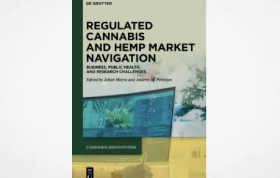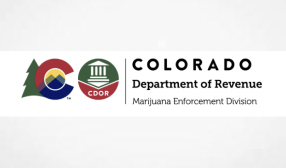Source: https://bmcpublichealth.biomedcentral.com/articles/10.1186/s12889-023-17142-0
BMC Public Health volume 23, Article number: 2318 (2023)
Abstract
Background
Cannabidiol (CBD), a non-intoxicating substance of Cannabis sativa L., is gaining consumer attention. Yet, legal regulations in the EU are complex and questions of potential health risks remain partly unanswered. In Germany, little is known about people who use CBD products. The aim of this cross-sectional study was to gain insight into the user group of CBD, reasons for consumption and risk perception towards CBD-containing products.
Methods
The study consisted of two parts: In the first part of the study, the prevalence of CBD awareness and usage in Germany was estimated using a telephone survey and a population-representative sample of n = 1,011 respondents. Based on these results, n = 2,000 participants being aware of CBD were surveyed with an online questionnaire in the second part of the study to examine usage and perception of CBD in users and non-users.
Results
When the study was conducted at the end of 2020 and beginning of 2021, 40.2% of the German participants had already heard of products containing CBD, and 11.4% had actually used them. 42.1% of the users consumed such products regularly, at least once a week, primarily orally via oils or tinctures, and purchased them mainly online. Besides curiosity – addressed especially in young adults – anticipated health benefits including pain and stress relief were main reasons for use. More than half of the study participants perceived the health benefits of CBD use as high or very high. In contrast, the health risks were rated as low or very low by most respondents. Assumptions about official testing for safety as well as physical effects of CBD-containing products varied between users and non-users.
Conclusion
About one in nine people in Germany uses CBD-containing products. Given reasons for consumption and perception of potential health risks and benefits suggest that people are insufficiently informed about CBD-containing products. The results of the study indicate that risk communication is needed to raise awareness for the topic and to inform (potential) users.
Introduction
In recent years, cannabidiol (CBD) is gaining growing consumer attention [1]. The substance belongs to one of at least 130 naturally occurring phytocannabinoids that have been identified inCannabis sativa L. [2]. In industrial hemp, CBD is the main cannabinoid [3]. In contrast to tetrahydrocannabinol (THC), CBD is not intoxicating [4] and – according to a decision of the Court of Justice of the European Union – should therefore not be considered a narcotic [5]. Notwithstanding, CBD interacts with several molecular targets in the organism, potentially resulting in beneficial but also adverse health effects [6].
In consequence, products containing high CBD doses clearly exerting a pharmacological activity or being intended for the treatment of diseases are considered to be medicinal products in the European Union (EU). They require authorization according to EU regulations on pharmaceuticals [7]. The rationale behind this is to protect consumers from potential health risks that may arise from the products themselves or use of non-approved products with unproven effects instead of effective medicines.
Only low-dose CBD products without a pharmacological activity and without the intention to treat diseases may potentially considered to be foods. Such CBD-containing foods, however, are generally classified as novel in the EU [8]. They require a safety assessment carried out by the European Food Safety Authority (EFSA), followed by authorization by the European Commission before they can be marketed in the EU [9]. Numerous novel food applications for CBD and CBD extracts have been submitted during the last years and are partly under risk assessment [10]. EFSA recently identified some potential hazards but was not able to fully assess the actual risks due to several data gaps. Consequently, it was concluded that “the safety of CBD as a novel food cannot currently be established”[11]. Therefore, no foods containing CBD have yet been authorized and the marketing of such products as foods, including supplements, is currently considered illegal. Despite these rules, consumers can buy an increasing number of illegally marketed CBD-containing products, also in the form of food supplements, that are available mostly online or in retail stores. In some cases, such products are mislabeled, for example as “aroma oils” or “cosmetics” to circumvent legal rules [12].
As described, the regulatory context for CBD is complex and it might be put into question whether consumers are aware of both the legal aspects as well as the potential health risks. Therefore, the aim of the current study was to gain insight into the user group of CBD in Germany, to investigate reasons for consumption, and to gain information about the risk perception of the population and its knowledge about CBD-containing products in order to target risk communication and increase awareness for the substance.
https://bmcpublichealth.biomedcentral.com/articles/10.1186/s12889-023-17142-0
s12889-023-17142-0
















